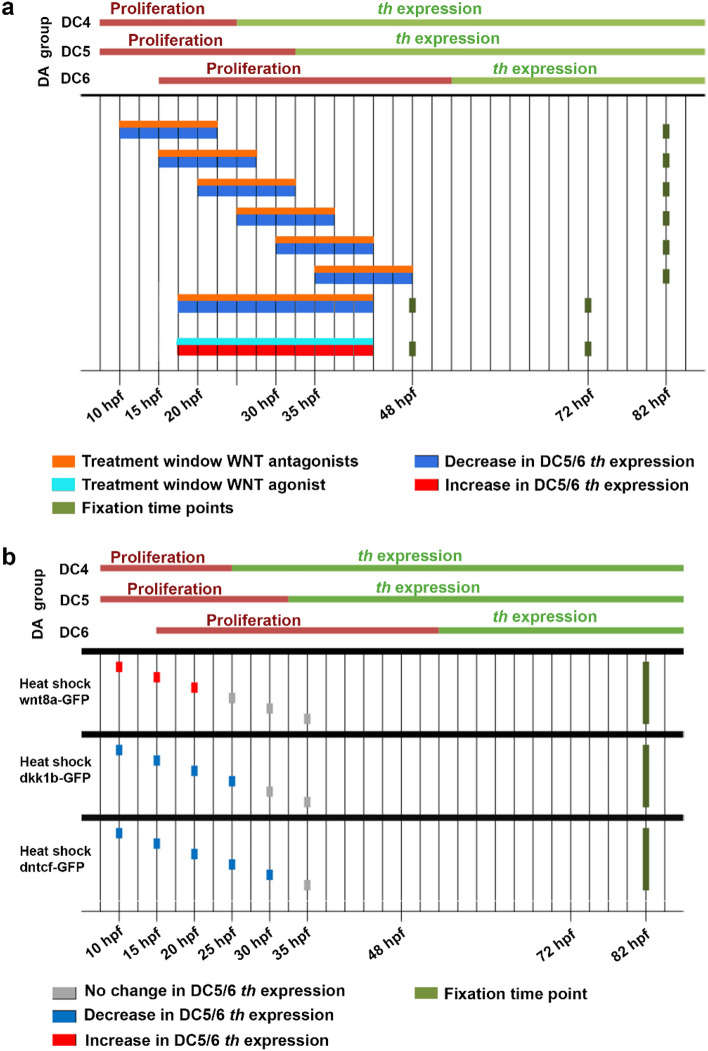Figure 3
Summary of effects of inhibition and activation of Wnt/β-catenin signaling on hypothalamic DC5/6 DA neuron development. (a) Experimental design and summary of the results of pharmacological inhibition and activation of canonical Wnt signaling. The graph summarizes the findings from Figs. 4 and and55 and Supplementary Figs. 2 and 3. Top half of bars shows treatment time, bottom half color code for effect on DA neurons. Small molecule antagonists IWR-1 or XAV939 were applied for overlapping 12 h time windows (orange bars). The small molecule antagonist IWR-1 and the agonist BIO were also each applied from 18 to 42 hpf (orange and cyan bars). Small molecule and control treated embryos were fixed at 48 hpf for Wnt target gene axin2 expression analysis and either at 72 hpf or 80 hpf for th expression analysis (dark green dots). Color code indicates whether the treatment caused a decrease (blue) or an increase (red) in th expression as analyzed in embryos at either 72 or 80 hpf. The upper part indicates the temporal correlation of treatment windows and results of pharmacological manipulations to cell cycle exit and differentiation of DC4 and most of DC5 and DC6 DA neurons25. (b) Experimental design and summary of the results of heat-shock induced overexpression of Wnt8a, Dkk1b and a dominant negativeTcf3 (dnTcf3). The graph summarizes the findings from Figs. 6 and and7.7. Single heat shock treatments were performed at indicated time points (dots). Heat shocked heterozygous transgenic embryos and WT siblings were fixed as indicated (green dots) for th expression analysis. Color code indicates whether the treatment caused no change (grey), decrease (blue) or an increase (red) in th expression. The upper part indicates the temporal correlation to DA development as in (a).

